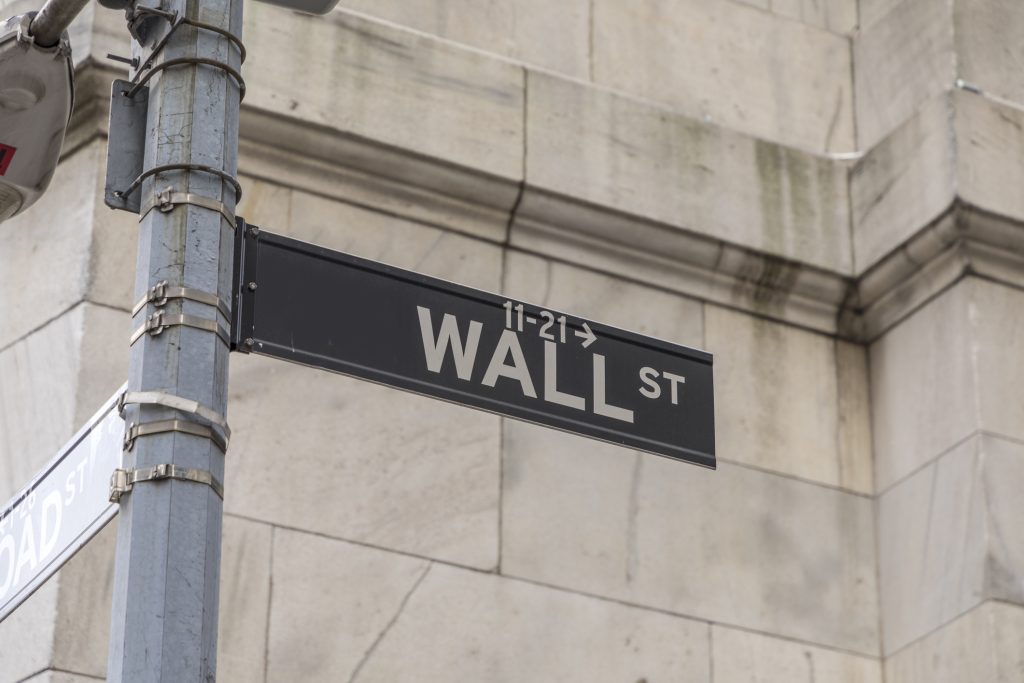By Stan Choe AP Business Writer
New York (AP) — Wall Street is quieter on Friday, and U.S. stocks are edging back from the records they set the day before during a worldwide rally.
The S&P 500 was 0.3% lower in morning trading but still on track for its fifth winning week in the last six. The Dow Jones Industrial Average was down 71 points, or 0.2%, after it likewise set an all-time high the day before. The Nasdaq composite was 0.3% lower, as of 10:30 a.m. Eastern time.
FedEx dragged on the market with a drop of 14.8% after its profit and revenue for the latest quarter fell short of analysts’ expectations. It said U.S. customers sent fewer packages through priority services, while it had to contend with higher wages for workers and other costs. FedEx also cut its forecast for revenue growth for its fiscal year.
Helping to limit the market’s losses was Nike, which ran 5.4% higher after it named Elliott Hill as its chief executive. Hill, 60, had spent more than three decades at Nike in various leadership positions before retiring in 2020. He replaces the retiring John Donahoe.
Shares in Trump Media and Technology Group slumped another 6.8% as its biggest shareholder, former President Donald Trump, won the freedom to sell his shares if he wants.
Trump owns more than half of the nearly $3 billion company behind the Truth Social platform. But Trump and other insiders in the company had been unable to cash in because a “lock-up agreement” prevented them from selling any of their shares. Before the lockup expired, Trump said he was in no rush to sell.
TMTG stock has dropped below $14 from more than $60 in March, and its decline Friday was in line with its volatile history. Over the last six months, it’s often swung by at least 5% in a day, up or down.
(Please click onto the image of the cat to hear Classic Rock & Oldies)

Homebuilder Lennar fell 4.6% after delivering a mixed earnings report. Its profit for the latest quarter topped expectations. But it also said it made less in profit on each $100 of home sales, and it expects that margin to stay flat in the current quarter.
Conditions may be set to improve for homebuilders, though. The Federal Reserve earlier this week cut its main interest rate for the first time in more than four years, with more likely to come. That could make mortgages more affordable for home buyers.
The momentous move closed the door on a run where the Fed kept its main interest rate at a two-decade high in hopes of slowing the U.S. economy enough to stamp out high inflation. Now that inflation has fallen from its peak two summers ago, Chair Jerome Powell said the Fed can focus more on keeping the job market solid and the economy out of a recession.
The Fed is still under pressure because hiring has begun to slow under the weight of higher interest rates. Some critics say the central bank waited too long to cut rates and may have damaged the economy.
Critics also say the U.S. stock market may be running too hot on hopes that the Federal Reserve will be able to pull off what earlier seemed nearly impossible: getting inflation down to 2% without creating a recession.
Barry Bannister, chief equity strategist at Stifel, is still calling for a sharp drop for the S&P 500 by the end of the year. He points to how much faster stock prices have climbed than profits at companies. When stocks have looked this expensive on such measures in the past, he said a recession and sharp downturn for stocks has followed.
He also warned in a report that slowing hiring “is now symbolic of recession risk.”
No economic releases are on the calendar for Friday to show where the economy may be heading. Next week will have preliminary reports on U.S. business activity, the final revision for how quickly the economy grew during the summer and the latest update on spending by U.S. consumers.
In the bond market, the yield on the 10-year Treasury rose to 3.75% from 3.72% late Thursday.
In stock markets abroad, indexes dropped across much of Europe after rising in Asia. Tokyo’s Nikkei 225 rose 1.5% after the Bank of Japan left interest rates steady, as was expected.
In China, the central bank left key lending rates unchanged on Friday. Indexes rose by 1.4% in Hong Kong and less than 0.1% in Shanghai.
AP Writers Matt Ott and Zimo Zhong contributed.
Notes from APS Radio News
From February 2020 to the Summer of 2022, the Federal Reserve added over $4.5 trillion to its holdings.
When it adds to its holdings, in effect, it infuses into the economy additional currency.
In the U.S., lockdowns closed over 160,000 businesses by November 2020, and major shipping ports were closed and were experiencing delays, due to “covid”-related policies.
The combination of shortages and rapid & substantially greater infusions of currency led to higher rates of inflation.
In recent months, levels of personal debt have reached record levels.


